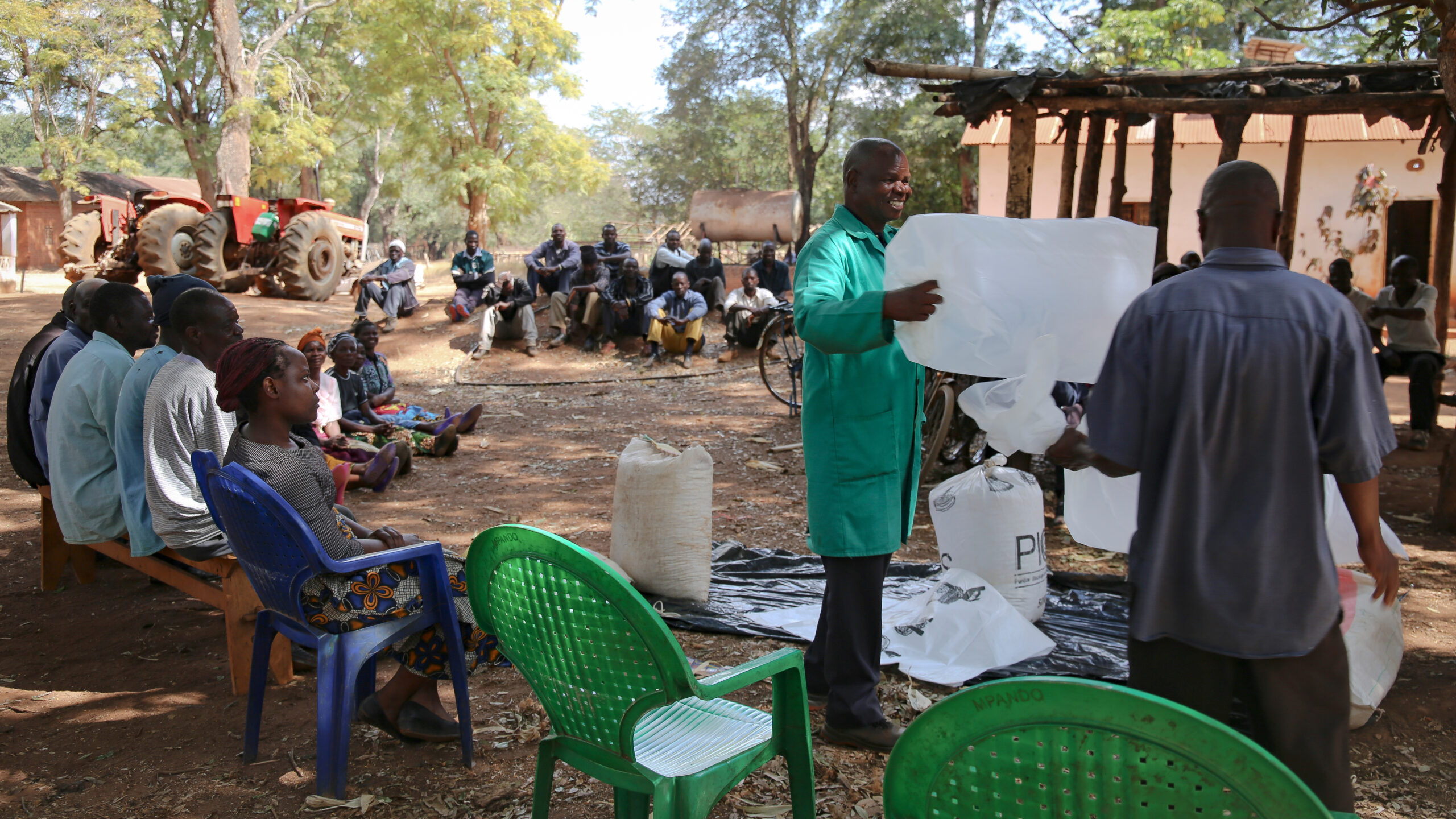For the last year, 12 countries in East and Southern Africa have been grappling with a cholera outbreak estimated to have resulted in almost 2,000 deaths and more than 100,000 hospitalizations. Zambia’s outbreak began in October 2017, then experienced a brief lull before exploding in early December. More than 3,000 people have been affected and close to 80 have died. In contrast to many other countries fighting the epidemic, Zambia’s outbreak is disproportionately concentrated in the capital city of Lusaka and especially in the low-income, high density informal settlements, known as compounds, that surround the city center. The compound of Kanyama, home to about 370,000 of Lusaka’s 1.7 million residents, is the worst-affected.
Cholera has been a challenge for Lusaka since the first major outbreak in 1990. Since then, cases have been recorded almost every year, and always correspond to the rainy season, which lasts from October to May. Due to their history as unauthorized settlements, many of the compounds are not connected to the sewer system and rely heavily on pit latrines. Lacking drainage and often located along unpaved roads, the rains often cause the pit latrines to overflow and garbage to drift away.
While the problem is perennial, the Government of Zambia’s response this year was particularly contentious with citizens. After investigations revealed that the outbreak was caused by contaminated food, in early January the Zambia police and army demolished 10,000 stalls, known locally as tuntembas, belonging to street vendors in Lusaka in an effort to address the outbreak. A week later, the army was called into Kanyama to quell riots by residents angry about the Government’s enforcement of the 2007 Street Vending and Nuisances Act, which allows the Lusaka City Council to ban street vending. The implementation of the ban is devastating for the livelihoods of Lusaka’s poor, who disproportionately comprise the city’s street vendors.
Such crackdowns on street vendors are certainly not uncommon in Africa. Vendors often sell fresh fruits and vegetables or prepared foods, and they are often targeted when cholera strikes. Yet, such crackdowns have been relatively rare in Lusaka since the Patriotic Front (PF) party took over government in 2011 after the election of the late President Michael Sata. Street vendors and market traders were the core of Sata’s urban constituency, and in successive election campaigns, he had vowed not to remove them from the streets given the country’s lack of formal employment opportunities. In 2011, Sata issued a letter to town clerks and council secretaries ordering them to cease all harassment of street vendors, and the PF’s general secretary even suggested that vending should be legalized. In 2012, Sata demoted his Minister of Local Government when she planned to sign a new statutory instrument against vending. A new market comprised of street vendors, known as Donchi Kubeba, even was allowed to organically emerge on a flyover bridge in the city, heavily populated by unemployed PF party loyalists.
After Sata passed away in 2014, his successor, Edgar Lungu, essentially pursued the same policy. Lacking Sata’s charisma and popularity, Lungu has tried to mobilize support by continuing to allow street vending, even to the point of weakening the LCC’s legal authority over managing the issue and undermining decentralization efforts. In 2015, he further established the Presidential Empowerment Initiative Fund to provide loans to street vendors and marketeers.
The PF’s longstanding approach of not enforcing laws over vending has been a politically expedient and seemingly costless form of buying votes from the urban poor. However, it also allowed street vending to mushroom to unsustainable levels, with clear negative implications for the health and sanitation of Lusaka’s residents, including of the vendors themselves.
Initial survey findings through a joint IFPRI-International Growth Centre project find that vendors often lack access to clean water and proper toilets, and the lack of drainage within markets is a constant concern during the rainy season. More broadly, the WHO/UNICEF Joint Monitoring Programme for Water Supply and Sanitation (JMP) shows that the proportion of the population using improved water sources in urban Zambia actually decreased between 2010 and 2015, from 49 to 47 percent, while those with at least basic sanitation fell from 51 to 49 percent. Seventy-five percent of the urban population has no access to basic handwashing services with both water and soap. The disparity on some of these indicators between the poorest and richest quintiles of the urban population is significant. Indeed, while 85 percent of the richest urban quintile has access to sanitation, the equivalent among the poorest quintile is only 10 percent.
In a city where cholera has been an annual event for the last two decades, informal vending must be effectively but also humanely managed to improve basic sanitation while avoiding unpredictable bans that hurt some of the city’s most vulnerable citizens.
Beyond sensitizing vendors about safe food handling practices, the Government must stay committed to implementing Zambia’s 2015 National Urban and Peri-Urban Sanitation Strategy and recognize that access to safe water, sanitation, and hygiene is needed not only where people live but also where they work. The World Urban Forum, taking place Feb. 7-13 in Kuala Lumpur, Malaysia, will certainly re-energize advocates in Zambia and beyond around key Sustainable Development Goals, including Clean Water and Sanitation (Goal 6), Decent Work (Goal 8), and Sustainable Cities (11).
Amid Zambia’s increasing political divisions, the challenge will be to ensure that long-term policy commitments to a water, sanitation, and hygiene (WASH) agenda are sustained beyond such high-level events and are not forgotten in favor of easy vote-buying tactics, especially as the country’s 2020 elections loom just around the corner.
Danielle Resnick is a Senior Research Fellow in IFPRI’s Development Strategies and Governance Division.







